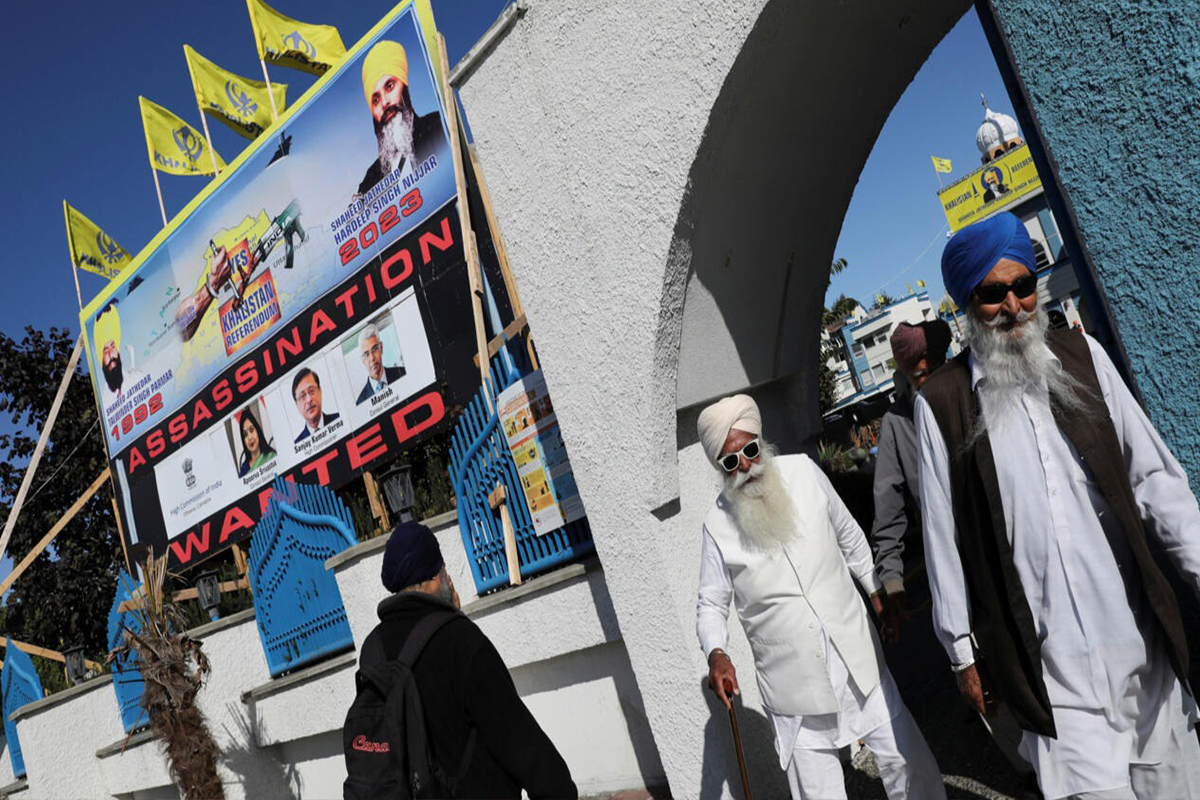Bilateral relations between India and Canada have taken a massive hit after Ottawa dragged New Delhi in the June killing of Hardeep Singh Nijjar. The situation quickly spiralled out of control and both countries expelled one senior diplomat of each other on Tuesday.
How India reacted?
India denied all the allegations and termed those allegations as “absurd and motivated”.
The Ministry of External Affairs (MEA) said “Such unsubstantiated allegations seek to shift the focus from Khalistani terrorists and extremists, who have been provided shelter in Canada and continue to threaten India’s sovereignty and territorial integrity.”
“The inaction of the Canadian Government on this matter has been a long-standing and continuing concern. That Canadian political figures have openly expressed sympathy for such elements remains a matter of deep concern.”
Who is Hardeep Singh Nijaar?
Hardeep Singh Nijaar was born on 1967 in Jalandhar, Punjab. He moved to Canada in 1997 with fake identity. He arrived at Toronto Pearson International Airport on February 10, 1997 using a fake passport in the name of “Ravi Sharma”. After his refugee claim was rejected, he married a woman from British Columbia who sponsored him to immigrate as her spouse.
In Canada, he actively participated and organised pro-Khalistan events and raised funds for activities for the creation of a separate Sikh state out of Indian Punjab.
On June 18, 2023, he was shot dead by two unidentified gunmen outside a gurdwara in Surrey in the western Canadian province of British Columbia.
READ MORE: Justin Trudeau’s wokeism is on display
How he was connected to Khalistani group?
According to the Indian government, as the leader of the KTF (Khalistan Tiger Force), Nijjar was actively involved in the operationalisation and networking of the organisation, and the training and financing of its members.
In February 2023, the Ministry of Home Affairs notified Khalistan Tiger Force (among others) as a terrorist organisation under the Unlawful Activities Prevention Act (UAPA). The MHA said of KTF, “It is a militant outfit and it aims to revive terrorism in Punjab and challenges the territorial integrity, unity, national security and sovereignty of India and promotes various acts of terrorism, including targeted killings in Punjab.”
READ MORE: Canada accuses India for Khalistani’s killing; baseless, say Delhi
How it has impacted Canada-India relation?
The recent years of India-Canada relations have been marked by diplomat tensions and low bilateral engagement as India raised the issue of patronage to Khalistani terrorists hiding in Canada.
New Delhi has often registered strong protests with Ottawa over Khalistan groups’ conducting secessionist activities, orchestrated referendum, attacks on non-Sikhs and Hindu temples, and threats to Indian diplomats in Canada.
As Canada refuses to reign in on Khalistani elements, Prime Minister Justin Trudeau have been given cold shoulders during his visits to India over the years.










